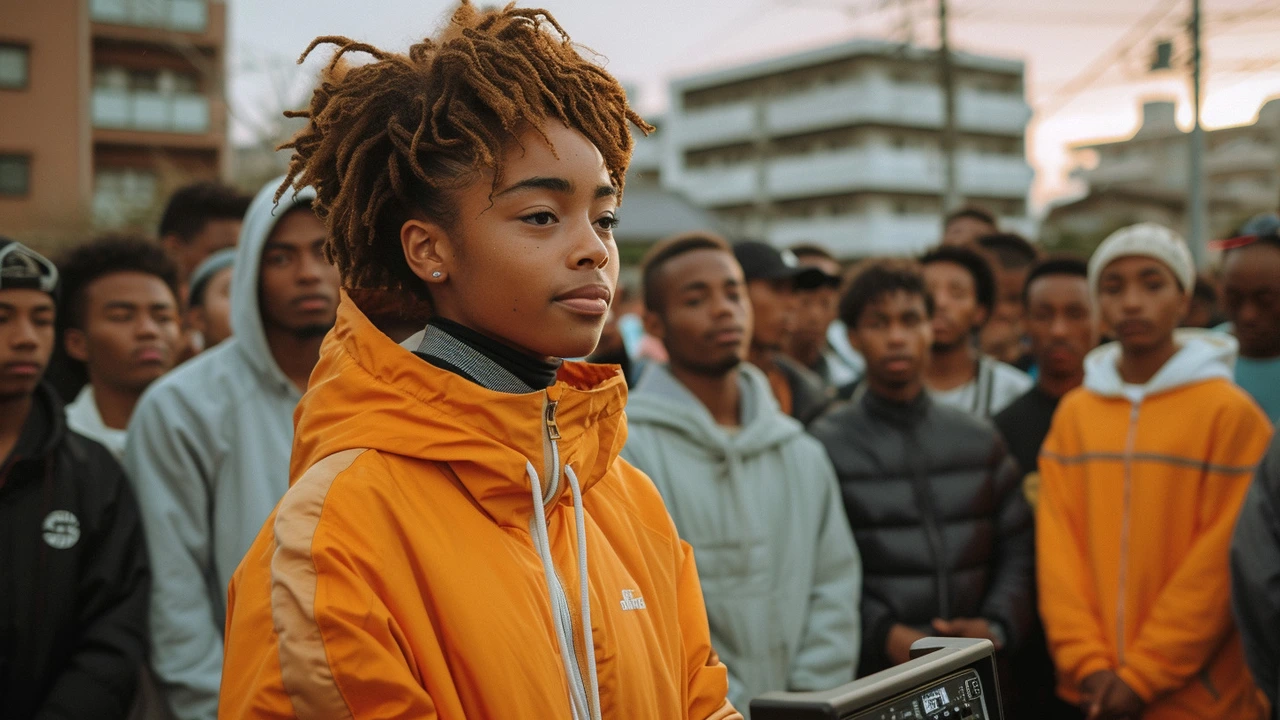Understanding the Roots of Hip Hop
Once upon a time, the sound of hip-hop was absent in the tapestry of global music. It was an unheard rhythm, a silent beat. But like a painted canvas unfurled to the world, it soon captured our attention and hearts. Originating from African American and Latino American communities in the Bronx, hip-hop offered a raw social commentary on life that was profoundly real, undeniably daring, and profoundly compelling.
The inception of hip-hop music posed questions, fueled activism, told stories, and ultimately, fought against racial discrimination and social injustices. It was the beat of the rebelling hearts that formed a powerful political tool – An audible clenched fist raised high against inequality. I remember the first time I heard a hip-hop track as a teen, the rhythm spoke to me. It resonated with the rebellious streak within me, teasing it to come alive and dance.
Transitioning From The Streets to Global Platforms
In its initial stages, hip-hop was not considered mainstream. Its robust sound and poignant lyrics often clashed with the sweet serenades of pop music. But as time passed, the gritty urbanness of hip-hop found its way into the glitzy corridors of global music.
In the mid-80s, hip-hop crossed over into the mainstream, leaving an indelible impact. Remembering the explosive launch of Public Enemy’s "Fight The Power" or N.W.A.’s "Straight Outta Compton", we can see evident signs of transition. Hip-hop became a revolutionary voice, comforting the disturbed and disturbing the comfortable. It flipped society’s norms on its head and asked you to reconsider your truth.
Rap Battles – Mic as The Sword
A crucial form of the hip-hop movement was Rap Battles. Here, two or more rappers would verbally contest against each other, with clever rhymes and impressive wordplay. These events would draw sizeable crowds, providing an avenue for local talents to express their thoughts and share their experiences.
Here, the hip-hop scenes from different locations began influencing each other, from the gritty parts of New York to the sun-drenched streets of Compton. It became a riveting medium of storytelling and wordplay combat, showcasing both skill and thought-provoking content. My husband Charlie and I consider it akin to watching a tennis match, where instead of a ball, lyrics were being volleyed!
Hip-Hop as a Form of Rebellion
Hip-Hop has always been a significant form of protest. It served as a mouthpiece for the unheard, shedding light on stories otherwise left untold, matters otherwise unaddressed. Artists like 2Pac and The Notorious B.I.G used hip-hop as an outlet to voice their frustration and anger towards societal, cultural, and economic issues.
Charlie and I often have debates about how hip-hop music has evolved since its inception, with him mostly playing devil's advocate. But we both unconditionally agree that the genre's rebel spirit is alive and kicking even today.
Hip Hop and Its Influence on Society and Politics
Over time, hip-hop's bass-driven beats and passionate lyrics captured the essence of a generation that demanded change. It gave birth to a new kind of social and political activism. Pieces such as Grandmaster Flash's "The Message" and Public Enemy's "Fear of a Black Planet" exemplified this.
Both these works were momentous, becoming anthems for equality, justice, and freedom. Fast forward to today, and we see hip-hop artists like Kendrick Lamar and Joey Bada$$ continuing this legacy, showing us that hip-hop's calls for justice are as relevant today as they were in the past.
Hip-Hop Influencing Mainstream Culture and Fashion
From oversized hoodies to Adidas Superstars, hip-hop has had an unforgeable impact on mainstream fashion. Just like the way, its lyrics and beats formed a resistance against societal norms, hip-hop's unapologetic and edgy style made a rebellious statement against traditional fashion norms.
And it wasn't just limited to clothes; it influenced hairstyles, accessories, and attitude. Hip-hop defied conventional beauty standards, celebrating individuality and freedom of expression. I remember rocking a pair of chunky gold hoop earrings in the 90s, a trending style influenced by hip-hop culture back then.
Hip-Hop: A Medium of Hope and Change
Through the rhythm and rhymes of hip-hop, it serves as a beacon of hope for those struggling against injustice. It tells them they're not alone and provides them with a platform to tell their stories and fight for their rights.
So next time when you're bobbing your head to your favorite hip-hop song, let's remember the roots, the rebellion, and the spirit of this musical genre. It's more than just music; it's a movement, an anthem, a battle cry against injustice.






